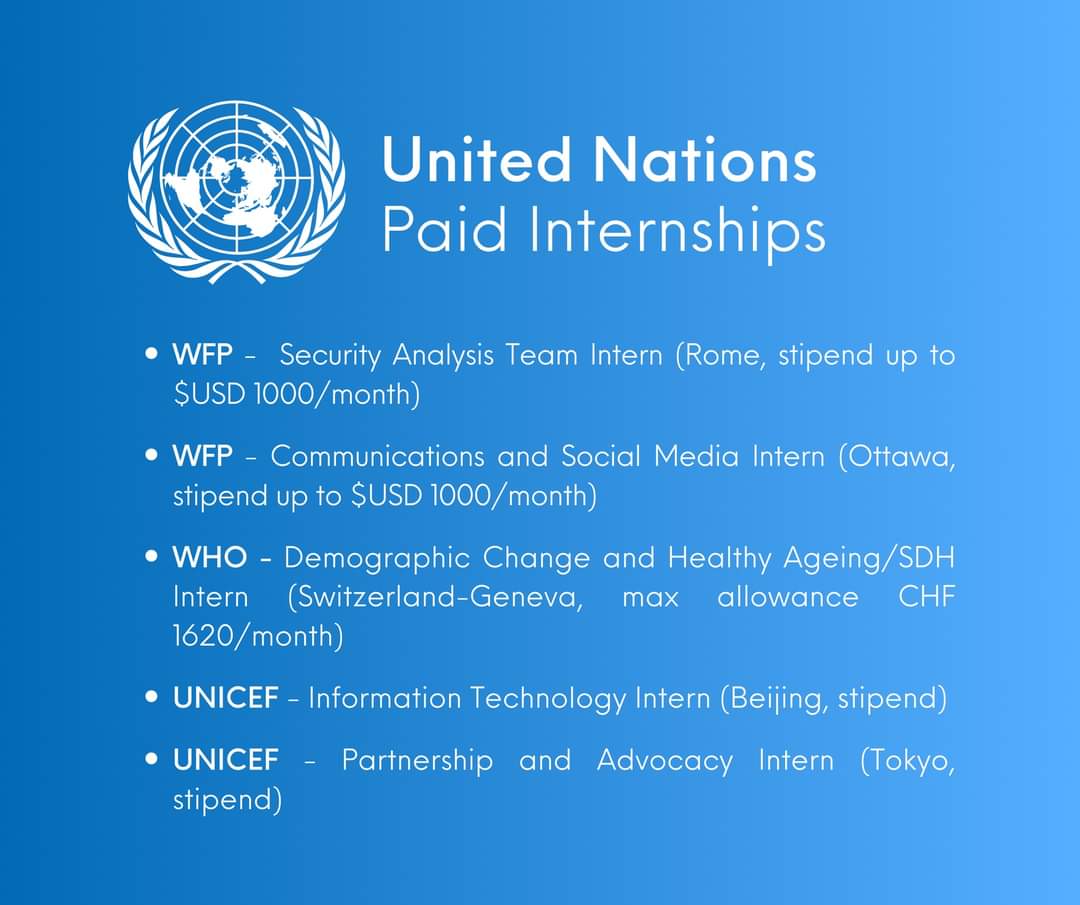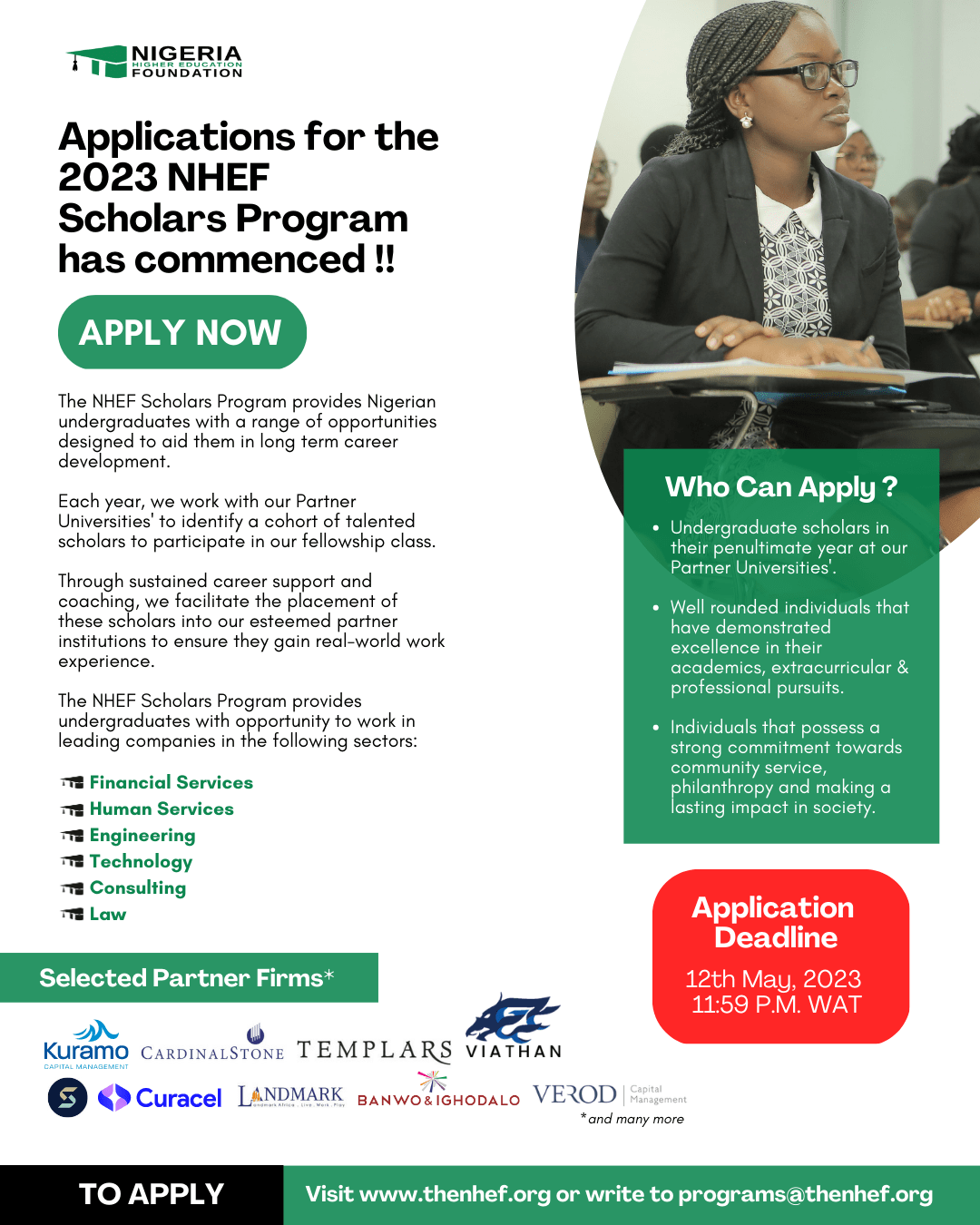Internship – Demographic Change and Healthy Ageing/SDH
OBJECTIVES OF THE PROGRAMME
The mission of WHO’s UHC/Healthier Populations Division is to contribute to reducing health inequalities and reducing preventable disease and injury caused by environmental, social and economic determinants of health. This is achieved through a coordinated inter-sectoral approach aimed at enabling all people to enjoy better health and well-being, in line with the Organization’s 13th General Programme of Work (GPW13) and the Sustainable Development Goals.
Within the HEP Division, the Department of Social Determinants of Health (SDH) leads WHO’s efforts on addressing the social, physical and economic conditions that impact upon health, by compiling and disseminating evidence on what works to address these determinants, building capacity and advocating for more action. The Department supports Member States and other partners to address violence and unintentional injuries, foster healthy ageing and improve equity and well-being. This will be facilitated through cross-cutting initiatives on improving urban health, addressing economic determinants, and developing strategic frameworks and evidence- based policies.
Within the SDH Department, the Unit on Demographic Change and Healthy Ageing (DHA) leads WHO’s multisectoral and multi-stakeholder collaboration to improve the social and physical environments that are responsive to demographic change and foster healthy ageing. The main areas of focus are on: 1) supporting voice and community engagement; 2) connecting diverse stakeholders and partnering across sectors; 3) developing evidence, norms and standards; 4) building capacity and multisectoral leadership; 5) developing multisectoral policy; and 6) global advocacy. The Unit coordinates, with the Unit for Ageing and Health, the work on the United Nations Decade of Healthy Ageing notably the Secretariat for the Decade.
DESCRIPTION OF DUTIES
Under the supervision of a Technical Officer within the Demographic Change and Healthy Ageing unit, the position holder will assist with the development and pilot testing of a measurement instrument for the abuse of older people in population-based studies.
The incumbent will work closely with ageing and thematic expert leads within the Department and with those in the Prevention of Violence Unit, and the Addressing the Needs of Populations in Vulnerable Situations Unit. The position holder may also liaise with WHO and Country counterparts (at different levels), United Nations agencies, Non-Government Organizations, Donors and academic institutions.
Terms of reference
Under the supervision of a technical expert in the respective area, the intern is assigned the agreed terms of reference:
1. Support the development of an reliable, valid, and cross-culturally valid instrument to measure the prevalence of the abuse of older people in population-based studies. Drawing on the systematic review of psychometric properties of existing instruments to measure abuse of older people, which will soon be completed, this will involve, among other duties:
Creating a pool of potential items to be included in the instrument for review by an expert group;
Helping to organize the online meeting of the expert group;
Developing response scales and pre-amble text for the items and for the instrument;
Writing a technical report detailing the item pool development and all steps required for the testing of the scale
Preparing a manuscript for submission to a scientific publication based on the technical report.
2.Begin the process of planning for the pilot testing of the measurement instrument for the abuse of older people in three to four countries (still to be determined). This will involve among other tasks:
Helping with the development of a research protocol to test and validate the instrument which will also be used for the application to WHO’s Ethics Review Committee.
3. Perform other related responsibilities as required.
Learning objectives
The purpose of the WHO Internship Programme is to provide an enriching learning experience for students and recent graduates. The Learning Objectives outlined within each internship vacancy are a key component of the programme.
Within this internship, the intern will:
- Understand the objectives of the work of the Demographic Change and Healthy Ageing Unit, of the Decade of Healthy Ageing, and in particular the implementation of the five priorities for addressing abuse of older people within the Decade of Healthy Ageing 2021–2030, in particular the priority related to generating better global, regional, and national prevalence estimates;
- Understand the different stages in the process of developing a measurement instrument to be used in a global context;
- Understand how scientific evidence informs WHO and wider global policy in relation to the abuse of older people;
- Understand how multi-country studies are organized and conducted;
- Understand how WHO collaborates with its academic partners and Collaborating Centres;
- Learn how to prepare a manuscript for publication in scientific journal;
- Learn about psychometrics and instrument development;
- Learn how to prepare a research protocol for an ethics review committee; and
- Write a technical report and manuscript for a scientific paper.
DURATION OF INTERNSHIP
Three months, from 1 September 2023 to 30 November 2023.
REQUIRED QUALIFICATIONS
Education
Have completed the equivalent of three years of full-time studies at a university or equivalent institution prior to commencing the assignment; AND be enrolled in a course of study at a university or equivalent institution leading to a formal qualification in medicine, public health, social sciences, or other related area (applicants who have already graduated may also qualify for consideration provided that they apply to the internship within six months after completion of their formal qualification).
If possible, have some post-graduate training in quantitative measurement, psychometrics, and instrument development.
Skills
Core competencies
- Teamwork
- Respecting and promoting individual and cultural differences
- Communication
All interns should be able to demonstrate the following skills in line with the WHO core competencies:
- Communicating effectively orally and in writing
- Showing willingness to learn from mistakes
- Producing and delivering quality results
- Working collaboratively with team members
In addition, interns need to be familiar with commonly used computer programmes, such as Word, Excel, PowerPoint. Knowledge of specialized computer programmes, for example, statistical software such as R, STATA, or SPSS is essential for this internship.
Experience
- Experience in research and/or in drafting reports;
- Field and/or developing country experience;
- Experience with data analysis, statistical packages, and instrument development;
- Experience working or doing research in the field of abuse of older people.
Languages
Essential: Expert knowledge of English.
Desirable: Intermediate knowledge of French. Intermediate knowledge of other UN language.
FINANCIAL SUPPORT
Interns do not receive a salary. They do however receive a living allowance. The allowance depends on the duty station and other external support (grant, scholarships, etc.) received by the intern. In Geneva, the maximum amount of the allowance provided by WHO is CHF 1620 per month. The exact amount of the living allowance will be calculated for each intern, after selection, based on a legal financial disclosure form that the individual will complete. In addition, all interns in Geneva will receive a lumpsum of CHF 15 for each working day to buy lunch at WHO campus or elsewhere. WHO also provides all interns with accident and medical insurance coverage.
ADDITIONAL INFORMATION
- Please note that internships at WHO are very competitive and only a small number of applicants will be accepted every year. Only candidates under serious consideration will be contacted will be contacted.
- Living abroad is expensive and finding accommodation can be challenging. All intern candidates should be aware of these factors before they consider applying for a WHO Internship.
- If selected for a WHO Internship, candidates will be required to provide certified copies of proof of enrolment in an eligible course of studies, a completed WHO medical certificate of fitness for work, and the contact details for reference checks details
- Interns are not eligible to take up a consultant or other non-staff contract in WHO for a period of three months following the end of the internship. However, no such restriction applies to temporary or longer-term staff positions if the vacancy has been advertised and a competitive process completed.
- WHO prides itself on a workforce that adheres to the highest ethical and professional standards and that is committed to put the WHO Values Charter into practice.
- WHO has zero tolerance towards sexual exploitation and abuse (SEA), sexual harassment and other types of abusive conduct (i.e., discrimination, abuse of authority and harassment). All members of the WHO workforce have a role to play in promoting a safe and respectful workplace and should report to WHO any actual or suspected cases of SEA, sexual harassment and other types of abusive conduct. To ensure that individuals with a substantiated history of SEA, sexual harassment or other types of abusive conduct are not hired by the Organization, WHO will conduct a background verification of final candidates.
Apply here
- Internship – Communications and Social Media, Communication Unit
- Office of the High Commissioner for Human Rights in Geneva Fellowship programme for people of African descent 2023 |Apply Now
- Apply Now: German Chancellor Fellowship Programme 2023 for emerging Leaders |Fully Funded to Germany
- Call for Applications: IOM – United Nations Migration is offering several paid internships |Fully-funded
- PC Census Training Allowance For Enumerators And Supervisors
- Call for Applications: IOM – United Nations Migration is offering several paid internships |Fully-funded
- Become a Young Global Leader at the World Economic Forum: Call for 2024 Class Nominations |Fully-funded
Never miss an opportunity Join our WHATSAPP GROUP OR WHATSAPP 2
Join our TELEGRAM GROUP














